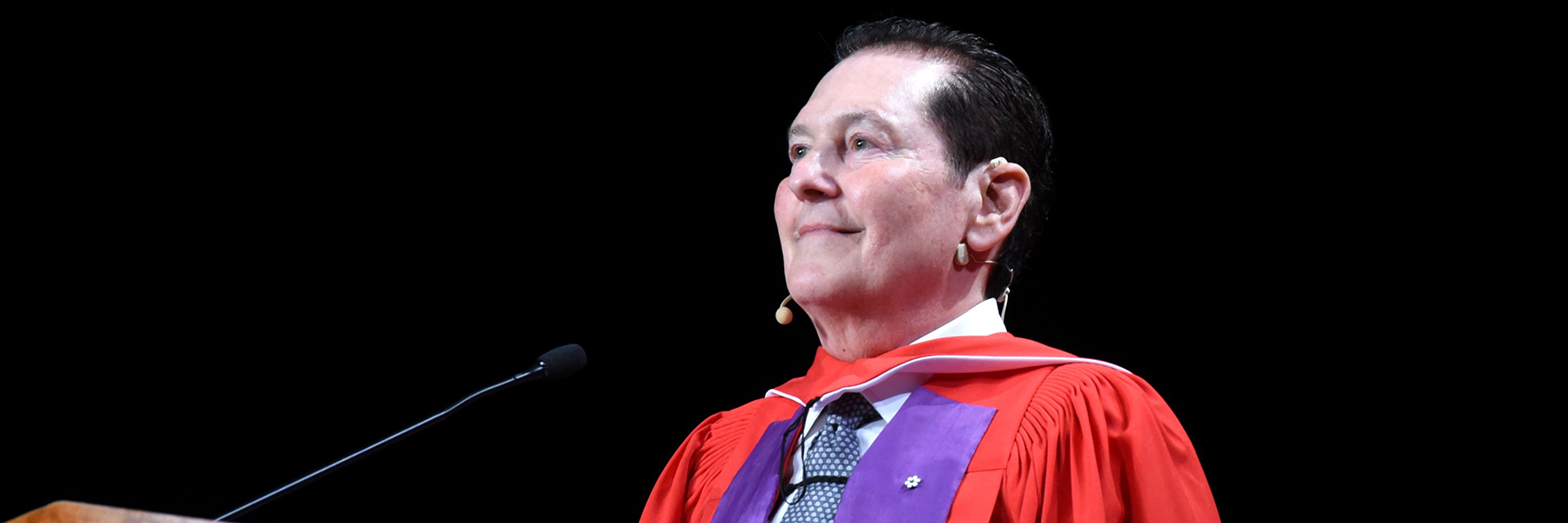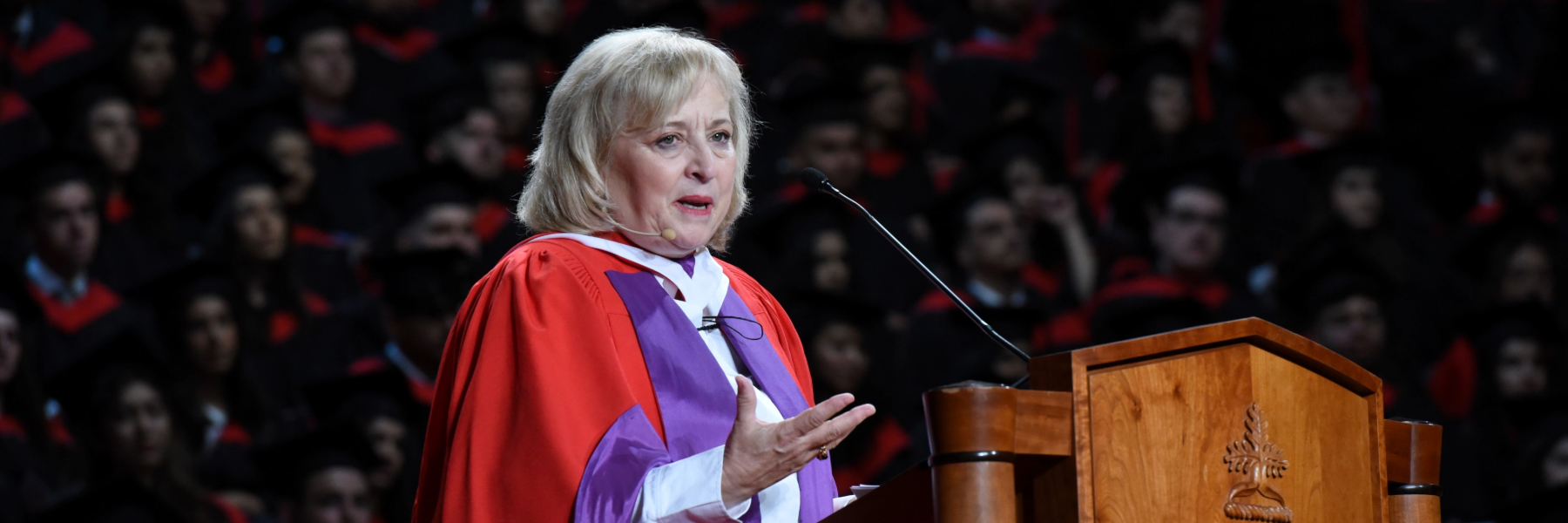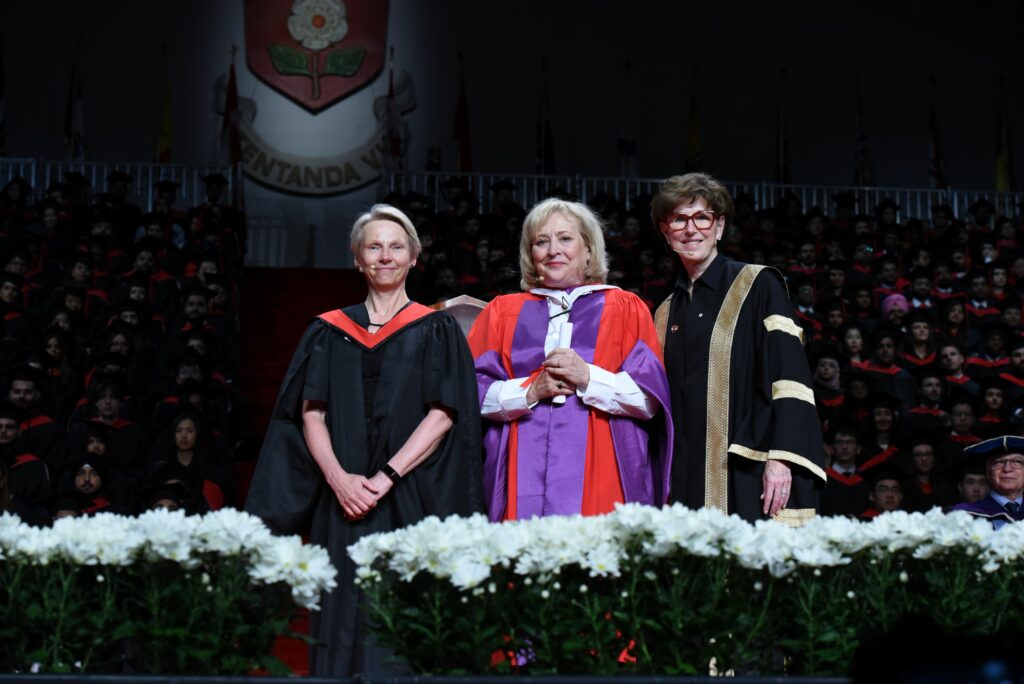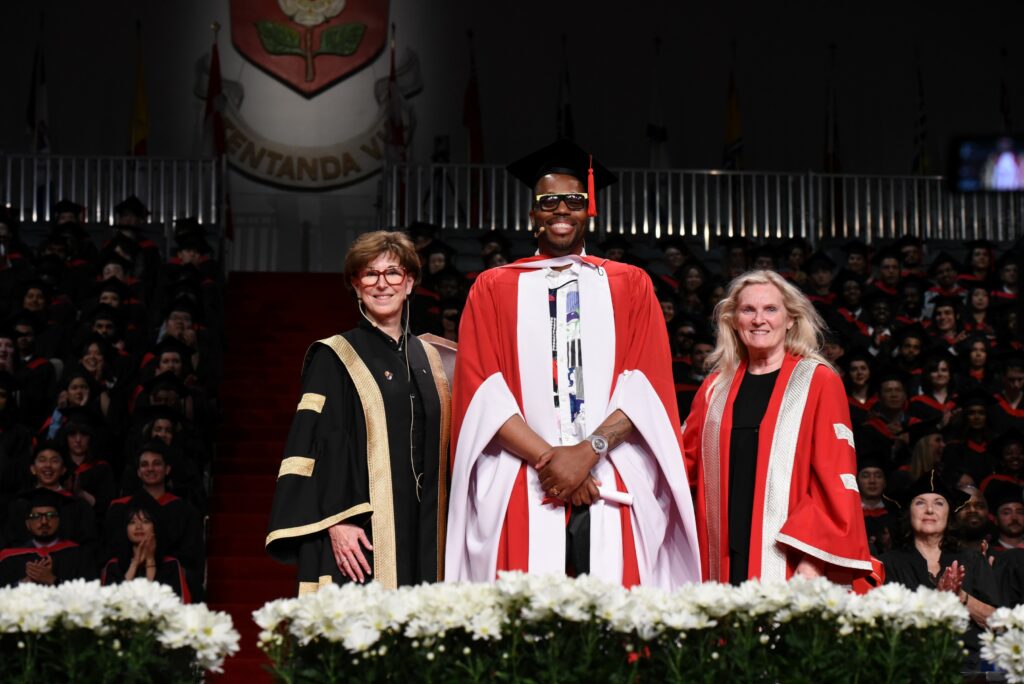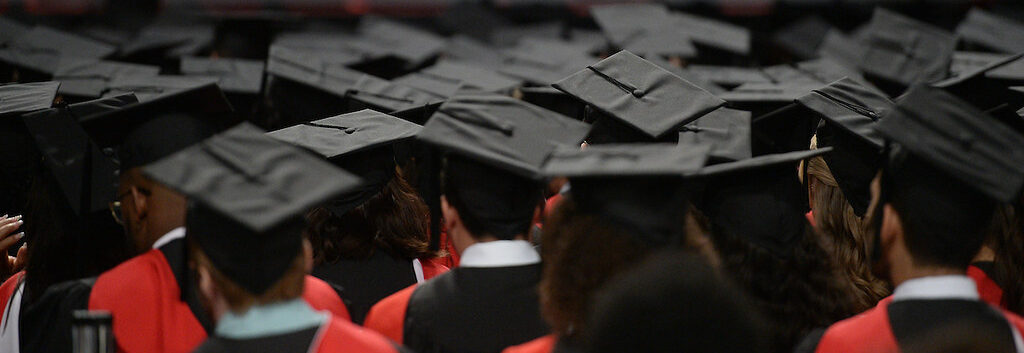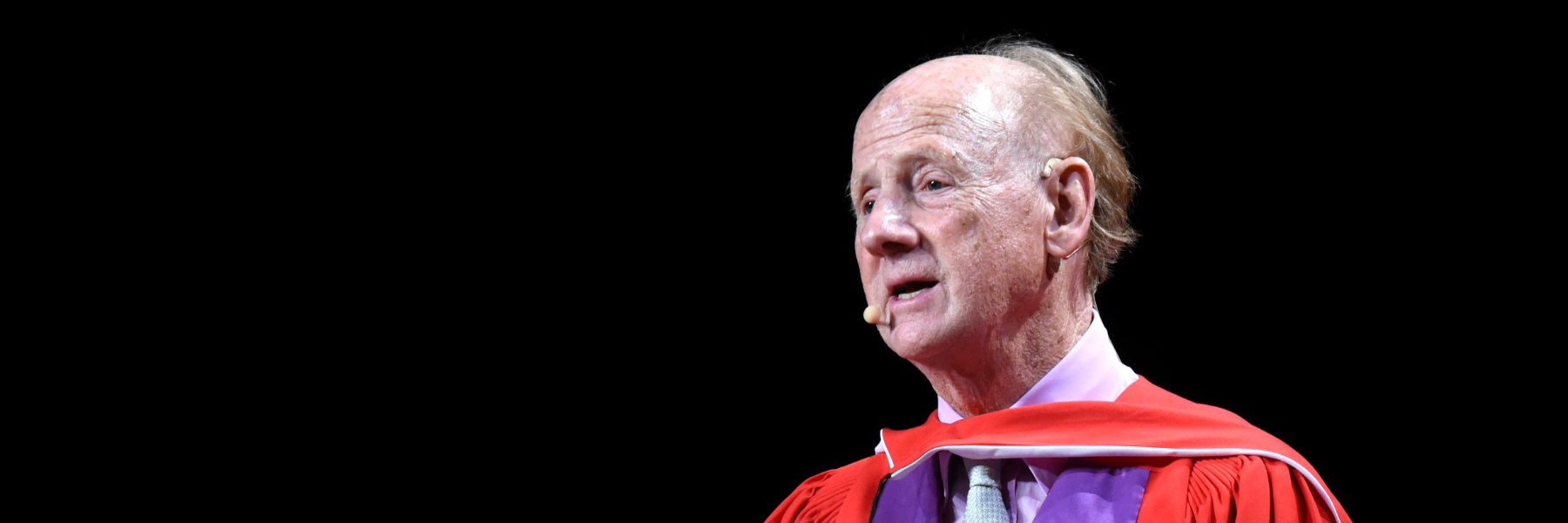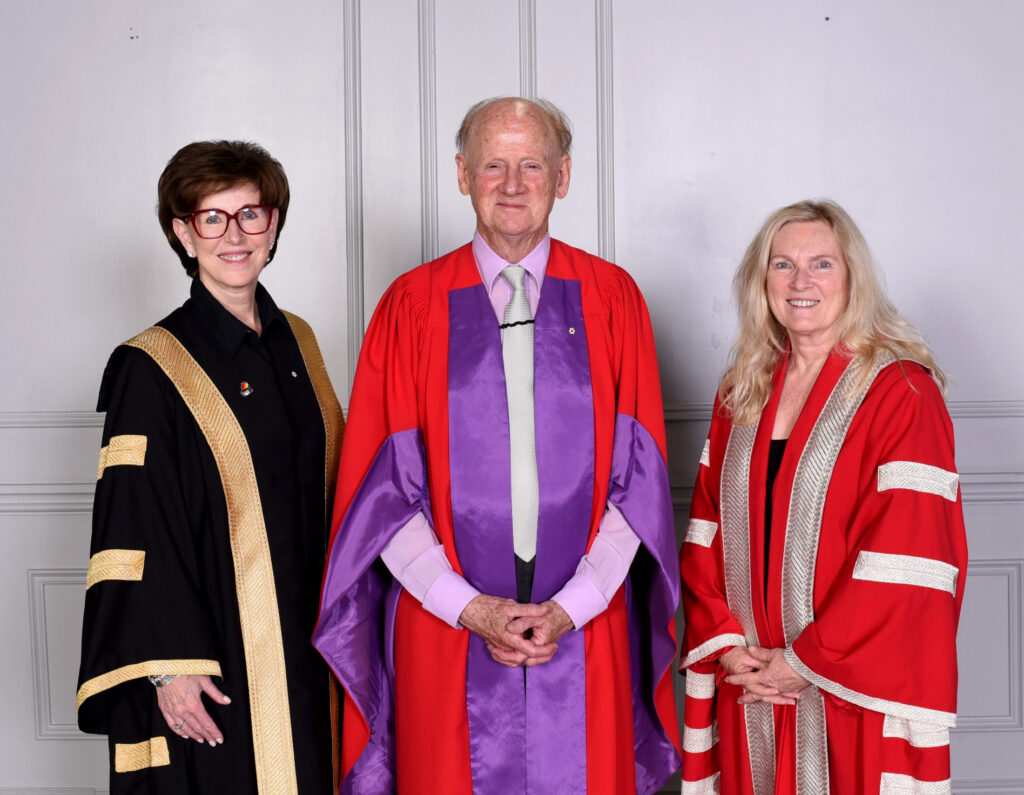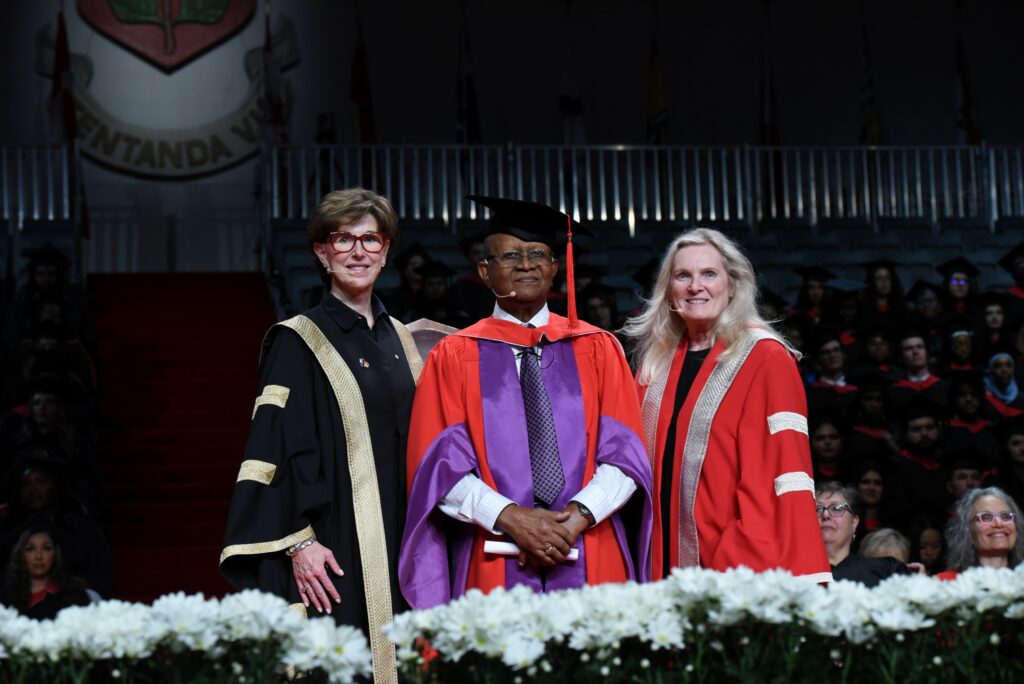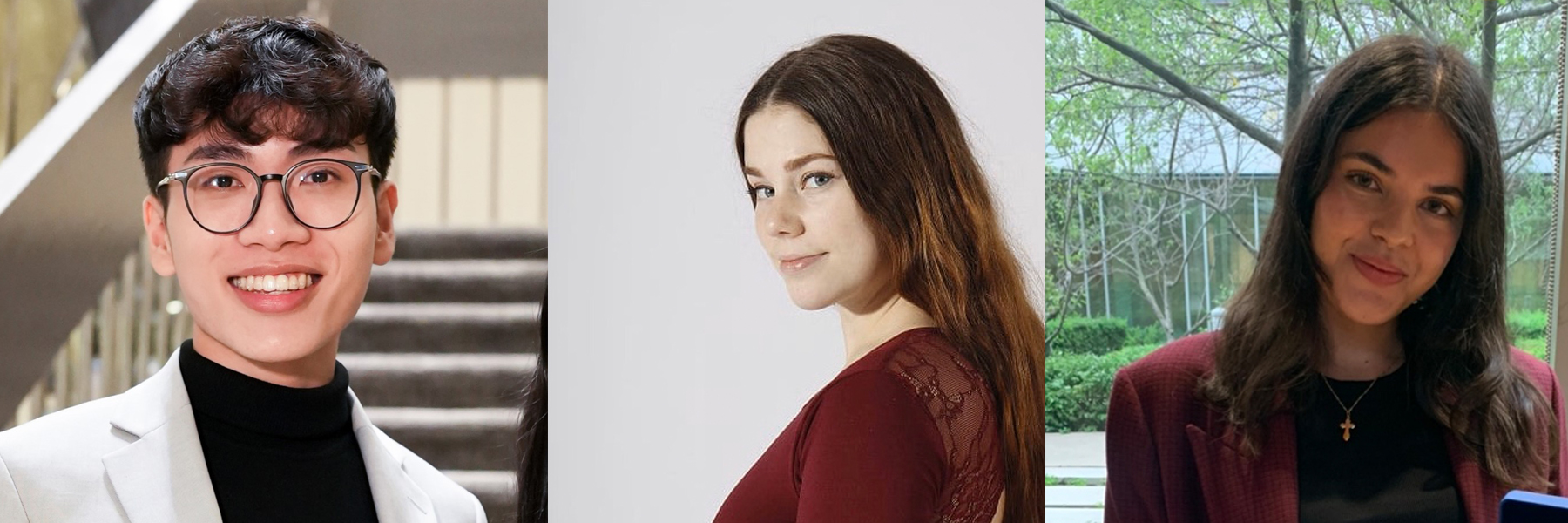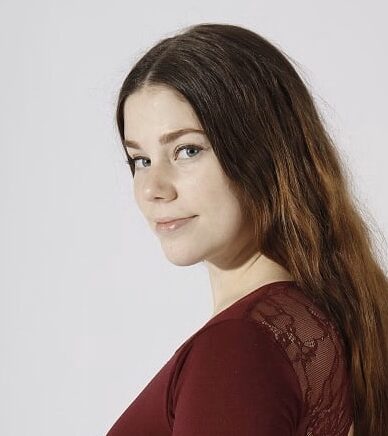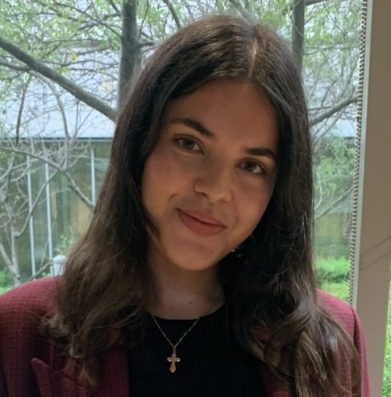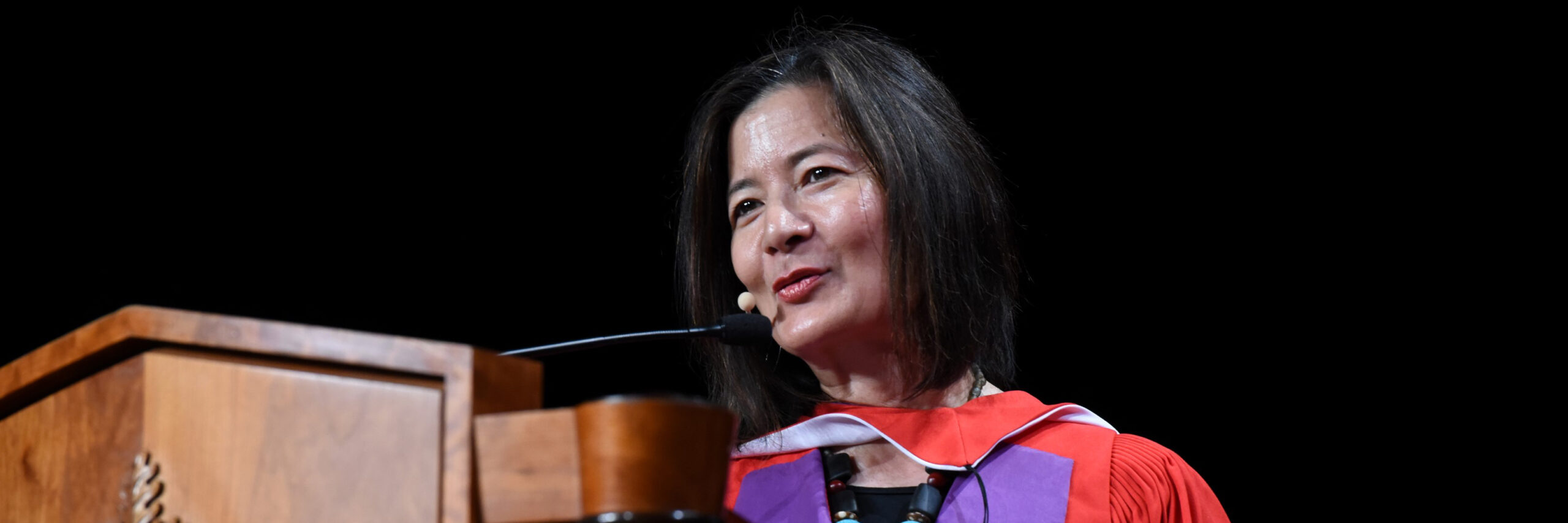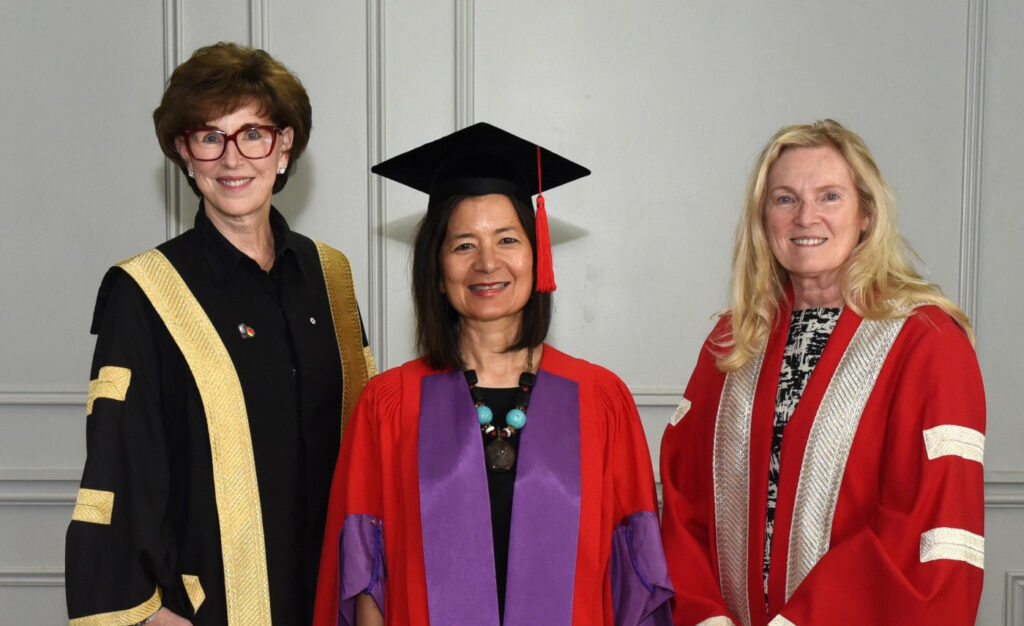By Alexander Huls, deputy editor, YFile
Dale Lastman, a leader in corporate and securities law, was awarded an honorary degree by York University during a June 21 convocation ceremony, the last for the spring Class of 2024, for the Osgoode Hall Law School.
With a professional journey full of notable accomplishments, Lastman wasn’t lacking in ways to begin his address or wisdom to share from his experiences.
Instead, he showed a video.
In it, Lastman’s toddler grandson was on a basketball court. Despite possessing a young child’s limited height and hand-eye co-ordination skills, which make shooting a ball into a 10-foot-high net altogether challenging, Lastman’s grandson was undeterred. He played on the court as if nothing was out of reach, as if each throw was as close to making it in as if an NBA player had handled it.
Most would probably see in that video simply a boy clowning around to little result, Lastman said. He, instead, finds inspiration. “I see the kind of person I aspire to be – someone who doesn’t think his dream is impossible; someone with no filters, no self-imposed limitations and no fear of what people might think,” Lastman said. “I see someone smarter than just about anyone I know, because he still dares to dream.”
Lastman mourned how the ability to dream so purely is something few are able to hold onto past their fifth birthday, as growing into the logistical realities of life makes dreams seem unreachable. But Lastman urged graduands to consider how many great ideas in this world likely never materialized because someone thought them impossible. In their journeys ahead, Lastman asked the Class of 2024 to reclaim the inner child in themselves that – like his grandson – is unwilling to believe things are out of reach and unconcerned with what could happen if they try and fail.
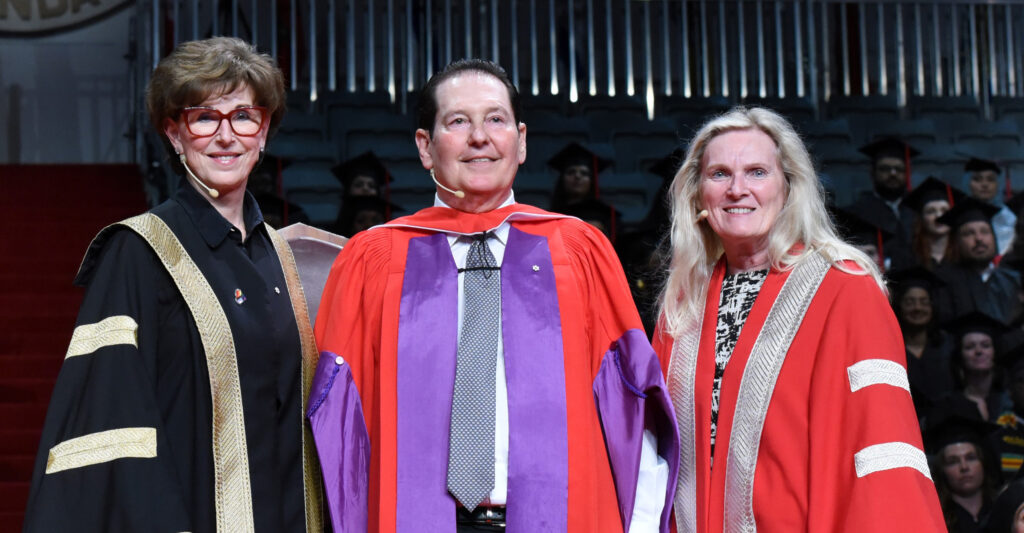
The honorary degree recipient also cautioned that what can limit an ability to dream is adopting, without question, labels – like student, professor, lawyer, doctor, engineer – in ways that can restrictively define who someone is and what they should want or do. “The moment we give ourselves these labels is the moment we start to filter our feelings and our thoughts not by what we think we can do, but by what we think we should do,” Lastman said. “Don’t let a label limit you.”
He urged, too, a broadening of personal and professional possibilities through the value of allowing a diverse range of perspectives, opinions, knowledge and information into one’s life. Notably, he asked graduands to cherish those they’ve met along the way in their academic ventures who can offer that. “The only thing more valuable than what you walk off stage with today is who you walk on stage with,” Lastman said.
The interpersonal, he said, will be critical for those graduands who want to differentiate themselves as they continue their lives and careers. He offered another personal story to illustrate.
Lastman recounted how every day he likes to go to the same Tim Hortons at 5 a.m. to get a cup of coffee. One day, he ran into a friend who saw how Lastman was drinking it and asked why he took his coffee black. Lastman replied that he usually doesn’t; he prefers it with skim milk, but Tim Hortons only carries two per cent milk.
The next morning when he returned for his daily coffee, a server let him know that an employee had overheard Lastman speaking to his friend, and brought skim milk in for his coffee. “I’ve been served thousands of cups of coffee over my life. Nothing ever made it any different or any better,” Lastman said, “except for this one woman who overheard me … and who cared enough to take it upon herself – without any incentive – to do something special. I don’t know who she is, but I will remember her for the rest of my life.”
In that employee – much like his grandson – Lastman wanted to illustrate a way forward for graduands to succeed. “Don’t expect to differentiate yourself by being smart,” he said. “A person’s opportunity to show their smart happens once in a blue moon. A person’s opportunity to show how much they care happens 20 times a day. That is the true measure of differentiation. It is how we can become our best selves.”
For those who do become their best selves, and achieve success similar to Lastman’s, he also had some parting advice: surround yourself with those who can keep you grounded. He recounted how, just that morning as he was getting ready to head to York University, he had fished for compliments from his wife when he asked her, “Can you believe, in your wildest dreams, that I would be getting a honorary doctor of laws degree?”
She replied, “Dale, I don’t know how to break this to you, but you’re not even in my wildest dreams.”
In that, Lastman’s wife and grandson, as well as the Tim Hortons employee, all demonstrated the nuggets of wisdom he hoped to leave the graduating class with. “Don’t just do what’s expected. Don’t be the person your label says you’re supposed to be. Don’t limit yourself. Don’t be like everyone else,” Lastman said.


